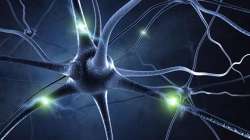Noticing misinformation can improve memory: Study
According to a recent study, people who can detect misinformation by linking it with the original event have better memory. The research further added that remembering wrong information and noticing it may improve participants' recognition

According to a recent study, people who can detect misinformation by linking it with the original event have better memory. The research further added that remembering wrong information and noticing it may improve participants' recognition later on.
Details that were less memorable, relatively speaking, were more vulnerable to the misinformation effect, the researchers said.
"Our study shows that misinformation can sometimes enhance memory rather than harm it," said lead author Adam Putnam.
"These findings are important because they help explain why misinformation effects occur sometimes but not at other times -- if people notice that the misinformation isn't accurate then they won't have a false memory," Putnam, who is a psychological scientist at Carleton College in Minnesota, US added.
The study suggests that the relationship between misinformation and memory is more complex than we might have thought -- mere exposure to misinformation does not automatically cue the misinformation effect, the researchers noted.
"Classic interference theory in memory suggests that change is almost always bad for memory, but our study is one really clear example of how change can help memory in the right circumstances," Putnam explained.
The study was published in the journal Psychological Science.
(With IANS Inputs)